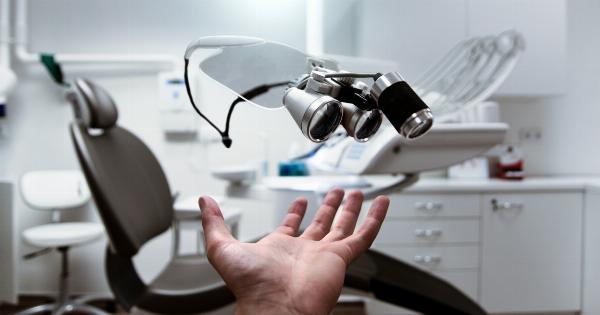Kronoi, a type of systemic disease, can affect different parts of the body, including the teeth. Dental health is an essential aspect of our overall health and well-being; therefore, we must learn about Kronoi and how it can impact our oral health.
What is Kronoi?
Kronoi is a rare type of Connective Tissue Disorder (CTD) that affects various parts of the body. People with Kronoi have a defect in the fibrillin gene that results in weak connective tissue.
This condition usually affects the skin, eyes, heart, and blood vessels. It can also have an impact on the teeth and the jawbone.
How Kronoi affects the Teeth?
People with Kronoi may have dental and skeletal abnormalities due to the weak connective tissue. The following are some ways Kronoi can affect the teeth:.
- Malocclusion: Kronoi can cause the development of malocclusion, which refers to a misalignment of the teeth. People with Kronoi may have a narrow upper jaw or a protruded lower jaw, which can lead to crooked teeth and bite problems.
- Dentinogenesis Imperfecta: Kronoi can affect the dentin, the inner layer of the teeth, which can cause Dentinogenesis Imperfecta (DI). DI is a genetic disorder that results in weak and discolored teeth. People with DI may experience sensitivity, chipping, and cracking of the teeth.
- Enamel Hypoplasia: Kronoi can also affect the enamel, the outer layer of the teeth, which can cause Enamel Hypoplasia. Enamel Hypoplasia is a condition that results in thin enamel, causing the teeth to be prone to cavities and decay.
- Gingival Recession: Kronoi can cause Gingival Recession, which refers to the receding of the gum tissue. People with Kronoi may have weak gum tissue, making them more susceptible to gum disease and tooth loss.
- Temporomandibular Joint Disorder (TMD): People with Kronoi may experience TMD due to the misalignment of the teeth and the jawbone. TMD can cause pain in the jaw, difficulty in opening and closing the mouth, and frequent headaches.
Diagnosis of Kronoi-related Dental Issues
If you have Kronoi, it is essential to seek proper dental care. A dentist can diagnose and manage the dental issues associated with Kronoi. The following are some diagnostic tools used to determine Kronoi-related dental problems:.
- Dental X-rays: Dental X-rays can show the extent of dental abnormalities, such as malocclusion, DI, and enamel hypoplasia.
- CT scans: CT scans can show the structure of the jawbone and the temporomandibular joint, which is essential in diagnosing TMD.
- Bite Analysis: A bite analysis can determine the extent of malocclusion and TMD.
- Periodontal Examination: A periodontal examination can determine the extent of gingival recession and gum disease.
Treatment for Kronoi-related Dental Issues
The treatment for dental issues related to Kronoi depends on the severity of the dental abnormalities. The following are some treatments used to manage Kronoi-related dental problems:.
- Orthodontic Treatment: Orthodontic treatment involves the use of braces and other orthodontic devices to align the teeth properly.
- Dental Restorations: Dental restorations, such as crowns and fillings, can be used to manage DI and enamel hypoplasia.
- Gum Grafting: Gum grafting can be used to treat gingival recession by transplanting gum tissue to the affected area.
- Temporomandibular Joint Treatment: TMD can be managed through the use of oral appliances, physical therapy, and pain medication.
Prevention of Kronoi-related Dental Issues
While Kronoi is a genetic disorder, some measures can be taken to minimize its impact on oral health. The following are some ways to prevent Kronoi-related dental problems:.
- Regular Dental Check-ups: Regular dental check-ups can help detect dental issues early, allowing for prompt treatment.
- Good Oral Hygiene: Proper brushing, flossing, and mouthwash use can prevent cavities, gum disease, and gingival recession.
- Healthy Diet: A diet rich in calcium, vitamin D, and other essential nutrients can promote strong teeth and gums.
- Quit Smoking: Smoking can cause gum disease, tooth loss, and TMD.
Conclusion
Kronoi is a rare connective tissue disorder that can lead to several dental issues, such as malocclusion, DI, enamel hypoplasia, gingival recession, and TMD.
It is important to seek proper dental care and diagnosis if you have Kronoi to manage its dental complications. Additionally, regular dental check-ups, good oral hygiene, healthy diet, and quitting smoking can help prevent Kronoi-related dental problems.




























